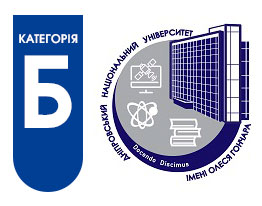Процедура рецензування
Ethical standards
The editorial staff of the journal "Current Issues of Domestic Jurisprudence" maintains a certain level of requirements in the selection and acceptance of articles submitted to the edition. These rules are determined by the scientific direction of the journal and the standards of quality of scientific works and their presentation, adopted in the scientific community.
The editorial calls for adherence to the principles of the Code of Ethics for Scientific Publications developed by the Committee on Ethics of Scientific Publications (COPE).
Ethical Obligations of Journal Editors
The editor should review all manuscripts submitted for publication without prejudice, evaluating each manuscript properly, regardless of race, religion, nationality, or the position or place of work of the author (s).
Information is not allowed to be published if there is sufficient reason to believe that it is plagiarism.
All materials submitted for publication are carefully selected and reviewed. The Editorial Board reserves the right to reject the article or return it for further revision. The author is obliged to revise the article according to the comments of the reviewers or editorial board.
The decision of the editor to accept the article for publication is based on such characteristics of the article as the importance of the results, originality, quality of presentation of the material and the correspondence of the journal's profile. Manuscripts may be rejected without review if the editor believes that they do not fit the journal's profile. In making such decisions, the editor may consult with members of the editorial board or reviewers.
Ethical obligations of authors
Authors should ensure that they have written completely original articles, and that if the authors have used the work or words of others, then it has been properly framed in quotation marks or quotes.
Submitting an identical article to more than one journal is considered unethical and unacceptable.
The article should be structured, contain enough links and be designed as required.
Unfair or deliberately inaccurate statements in the article constitute unethical behavior and are inadmissible.
The author who corresponds with the editorial board must ensure that all co-authors have read and approved the final version of the article and have agreed to its publication.
The authors of the articles bear full responsibility for the content of the articles and for the very fact of their publication. The editorial board does not bear any responsibility to the authors for the possible damage caused by the publication of the article. The editorial board has the right to remove an article if it is found out that in the course of publication the article violated someone's rights or generally accepted norms of scientific ethics. The editorial board informs the author of the fact of removal of the article.
Ethical obligations of reviewers
The editorial staff adheres to double-blind peer review to ensure objectivity in the evaluation of manuscripts
Since the review of manuscripts is an essential step in the process of publication and, therefore, in the implementation of the scientific method as such, each scientist is obliged to do some work on the review.
If the selected reviewer is not sure that his or her qualification is in line with the level of research presented in the manuscript, he must return the manuscript immediately.
The reviewer must objectively evaluate the quality of the manuscript, the experimental and theoretical work presented, its interpretation and presentation, and the extent to which the work meets high scientific and literary standards. The reviewer should respect the intellectual independence of the authors.
Reviewers should adequately explain and reason their opinions so that editors and authors can understand why their comments are based. Any statement that an observation, conclusion, or argument has already been published must be accompanied by a reference.
The reviewer should draw the editor's attention to any significant similarity between this manuscript and any published article or any manuscript submitted to another journal at the same time.
Reviewers should not use or disclose unpublished information, arguments, or interpretations contained in this manuscript unless the author agrees.
1. The article is emailed to the editorial office: Этот адрес электронной почты защищен от спам-ботов. У вас должен быть включен JavaScript для просмотра.
2. Each article is registered, indicated:
details of author (s);
title of the article;
Name, position and degree of reviewer (s);
3. The article is submitted to the reviewer. Review period is several days.
4. The reviewer provides a thorough review that reveals the urgency of the problem, the positives of the study, and highlights the shortcomings. The review ends with a clear conclusion: "To print" or "For revision" or "Not recommended for publication".
The review highlights the following issues:
• whether the content of the article corresponds to the topic stated in the title;
• whether the content of the article corresponds to the thematic areas of the magazine;
• whether the content of the article has some novelty;
• whether the article corresponds to the scientific level of the journal.
The editorial board does not enter into discussions with the authors of the rejected articles.






